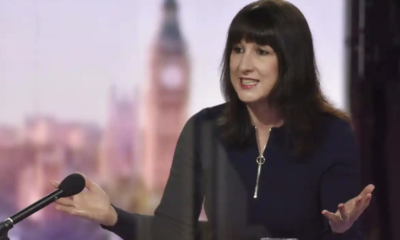Business
Inheritance taxes conflict with conservative values, Hunt says

Chancellor Jeremy Hunt has declared the inheritance tax unfair and ‘deeply anti-conservative’ and committed to supporting the middle class with tax breaks.
In an interview with The TelegraphHunt highlighted the Conservative Party’s commitment to an end to taxes that discourage earning and saving, and pledged to build on recent cuts to National Insurance.
In his first interview since Prime Minister Rishi Sunak called a snap election on July 4, Hunt outlined a Tory manifesto focused on tax cuts aimed at boosting growth. He stressed the need to reduce “taxes on work” and taxes that “discourage saving”, with the aim of creating a more favorable economic environment for both workers and savers.
Hunt’s comments come amid warnings from private schools that parents are withdrawing their children ahead of Labor’s promise to add VAT to school fees. Labor leader Sir Keir Starmer has pledged to prioritize this tax change from “day one” of a Labor government, with a view to ensuring rapid implementation.
In contrast to Labour’s tax plans, Hunt indicated that the Conservatives would seek to abolish the 60% effective tax rate on incomes between £100,000 and £125,140, caused by the phasing out of the tax-free personal allowance. He stressed the importance of allowing workers to keep a greater share of their income, reiterating the goals of abolishing national insurance, moving more people from welfare to work and support for homeownership.
“Our priority will be taxes that stimulate growth,” Hunt said. “This includes business taxes that encourage investment and taxes on employment. Our cuts to national insurance are intended to address one in five vacancies in the economy. We also need to tackle taxes that discourage saving to encourage more investment in the economy.”
Hunt firmly rejected the idea of introducing a wealth tax, promising: “There will be no wealth tax under a Conservative government.” He described inheritance taxes as “pernicious,” arguing that it discourages saving for the future and conflicts with conservative principles.
Although Hunt last year considered cutting inheritance tax and possibly halving the rate from 40% to 20%, he refrained from making specific commitments in the manifesto. He stressed that his “first priority” is cutting taxes that have the greatest impact on economic growth.
Asked whether reducing inheritance taxes is a priority, Hunt said: “I would hope that this is something that a Conservative government could look at over time.” He underlined the wider importance of making work pay and moving people from welfare into work, including cutting marginal tax rates on income above £50,000 as benefits such as Universal Credit are withdrawn.
This position highlights a clear Conservative strategy focused on tax reforms aimed at boosting growth, encouraging savings and supporting the middle class, while drawing a clear line against Labour’s proposed tax changes.













